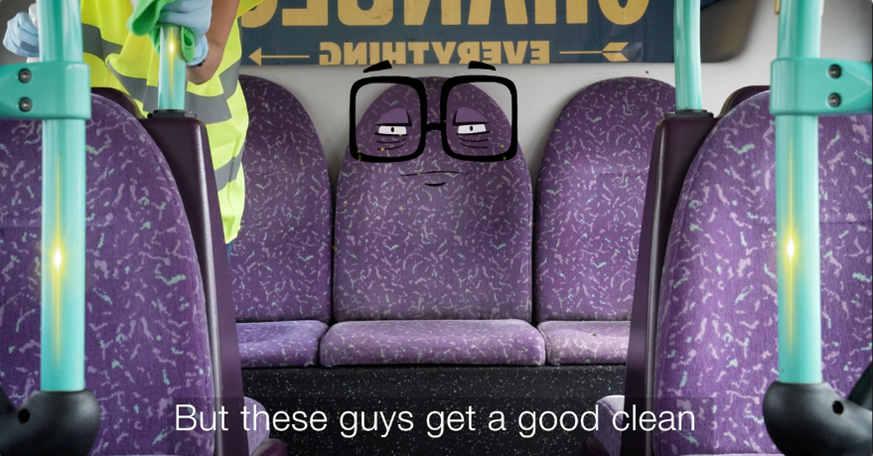Routes of Infection – Public Engagement for Infection Prevention on Public Transport

Researchers from the University of Southampton and the University of Newcastle have been granted funding from UK Research and Innovation’s COVID-19 Rapid Response Fund via the Arts and Humanities Research Council for their project on Routes of Infection , Routes to Safety – a study of pathogen transmission and infection prevention behaviours on public transport.
The research grew as a development of the highly-successful NAMRIP pump-priming study ‘Mapping Microbes’, and NAMRIP’s founder, Professor Leighton, was very pleased to write in support of the investigatory team (Drs. Emma Roe, Sandra Wilks and Paul Hurley from Southampton, and Dr Charlotte Veal from Newcastle University (formerly from Southampton) regarding the research bid 'Routes of infection, routes to safety: Creative mapping of human-viral behaviours on the bus to understand infection prevention practices'.Drs Roe and Veal had accompanied Professor Leighton to Uganda in 2019 for the Global-NAMRIP’s conference there, which included a showing of the film 'In Our Hands’ that was a key product of the initial Global-NAMRIP pump-priming study.
This latest research culminated in the release of a series of short films in December 2021, produced in collaboration with film maker Joseph Turp, who also made the team’s highly regarded 'In Our Hands’ in 2017. These new films, 'You're Never Alone on the Bus' demonstrate and promote bus safety measures such as ventilation, masks (including while sneezing or speaking on the phone), keeping space, and frequent bus disinfecting, and have been viewed by many, including bus operators, community groups and customers.
You can view the films here, where they are also available to download and use for free under Creative Commons.
Uniting social science, microbiology and user experiences, the film series was developed from research which initiated in January 2021 and focussed on bus users’, cleaners’, drivers’ and operators’ feeling of safety and, risk, and on how people imagined and related to unseen potential pathogens in their day-to-day environments.
Work throughout the year included research surrounding service user demographics; associations with mask-wearing or handwashing; changing legal mandates and social norms; and the impact of public perception of the virus and precautionary measures taken on the bus. It involved interviews, workshops and a microbiome study of a bus route, with extensive swabbing undertake over a period of several months.
In partnership with Bus Users UK, the team also held a series of local, regional and national workshops in Dec 2021 and Jan 2022 on public health, public transport and communication in the pandemic. These brought together community, corporate, government and third sector stakeholders in public transport, in conversations that have informed ongoing public engagement work.
Click here to view the series of short films and the interim report